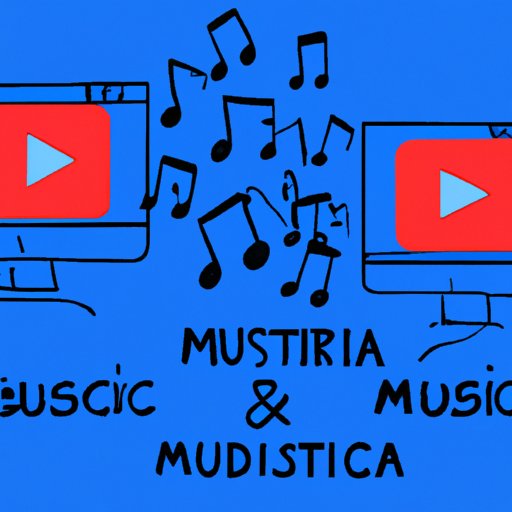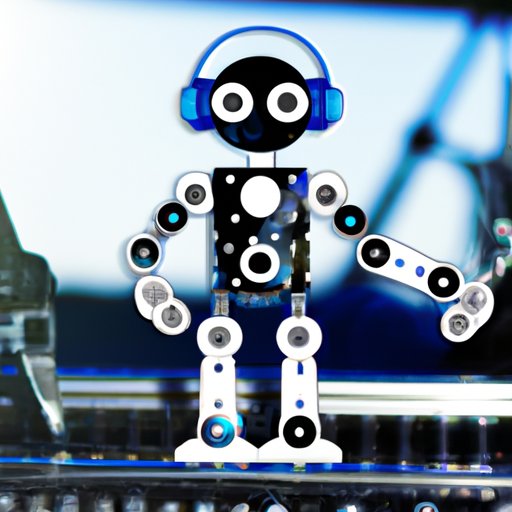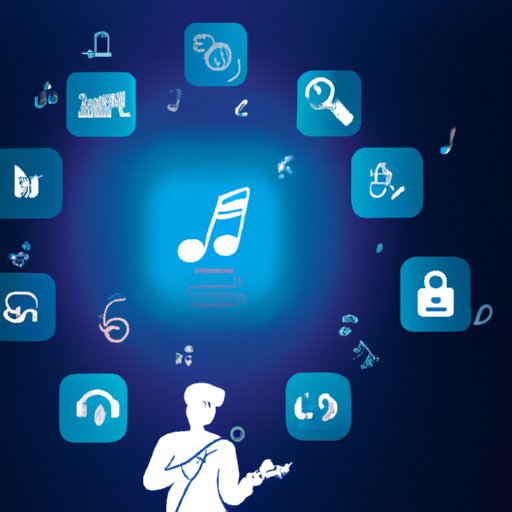Introduction
In recent years, technology has had a profound impact on the music industry. Digital tools have revolutionized the way we produce, distribute, and consume music. From the rise of streaming services to the emergence of artificial intelligence (AI) in music composition, technological advances have changed the way we experience music. This article will explore how digital technologies have affected the music industry, from production to promotion and distribution.
Examining the Impact of Digital Technology on Music Production
Digital technology has made music production more accessible than ever before. With the advent of digital audio workstations (DAWs), aspiring producers no longer need expensive recording studios to make music. All they need is a computer and a few pieces of software. As a result, there has been an explosion of independent artists producing their own music.
The increased accessibility of music production tools has also led to a wider variety of music production practices. Producers are now able to experiment with different sounds and techniques to create unique and innovative music. According to a study by the Berklee College of Music, “the availability of new tools, software, and hardware has allowed for more creative production techniques, as well as more diverse genres of music.”
Digital technology has also improved the quality of music production. The use of high-quality digital audio formats, such as WAV and FLAC, allows producers to capture the nuances of sound with greater accuracy. Additionally, plugins and virtual instruments provide producers with a vast array of sounds and effects to work with.

Exploring How Online Streaming Has Changed the Music Industry
Online streaming services, such as Spotify and Apple Music, have revolutionized the way we listen to music. These services offer users access to millions of songs at the click of a button. This has made it easier than ever to discover new music and share it with friends.
However, online streaming has had a major impact on the music industry. Music labels and artists have seen a decrease in revenues due to the low royalties paid out by streaming services. Additionally, streaming has changed the way people listen to music. Consumers are now more likely to listen to individual songs rather than whole albums.

Looking at the Role of Social Media in Music Promotion and Distribution
Social media has become an essential tool for music promotion and distribution. Platforms such as YouTube and SoundCloud have made it easier for artists to reach a wider audience. Artists can upload their music directly to these sites and promote it through their social media channels.
Social media has also enabled the spread of viral music trends. One example is the rise of TikTok, which has sparked a number of hit songs over the last few years. Furthermore, online communities, such as Reddit and Bandcamp, allow musicians to connect with fans and build a dedicated following.
Analyzing New Technologies for Enhanced Audio Quality
Recent advances in technology have enabled the development of high-resolution audio formats that offer superior sound quality. High-resolution audio formats, such as DSD and MQA, are capable of capturing the full range of sonic details. Additionally, loudness normalization and dynamic range expansion technologies have improved the playback quality of audio recordings.

Investigating the Impact of Mobile Devices on Music Consumption
Mobile devices, such as smartphones and tablets, have made it easier than ever to enjoy music on the go. With the proliferation of streaming services, users can access their favorite songs from anywhere. Additionally, mobile devices offer personalized music experiences, such as curated playlists and personalized radio stations.

Examining the Effects of Automation on the Music Industry
Automation has had a significant impact on the music industry. Digital tools, such as autotune and drum machines, have increased the efficiency of music production. As a result, producers can create music faster and with less human labor. Additionally, automated systems, such as AI-driven mixing and mastering algorithms, can help producers achieve better results.
Discussing the Use of AI in Music Composition
Artificial intelligence (AI) has recently been used to create music. Generative music algorithms, such as Google Magenta, are capable of composing original melodies and rhythms. Adaptive music systems, such as Sony’s Flow Machines, are able to generate music in a specific style or genre. Additionally, AI-assisted songwriting tools, such as Amper, can help songwriters craft lyrics and come up with catchy hooks.
Conclusion
This article has explored how digital technologies have impacted the music industry. From increased accessibility of music production tools to the emergence of AI in music composition, technology has had a profound effect on the way we produce, promote, and consume music. As technology continues to evolve, the future of music looks brighter than ever.
In summary, digital tools have revolutionized the way we produce, distribute, and consume music. Online streaming services have changed the way people listen to music, while social media has provided a platform for music promotion and distribution. Additionally, new technologies have enabled enhanced audio quality and personalized music experiences. Finally, automation and AI have made music production faster and more efficient.
The implications of these changes are far-reaching. As technology continues to advance, the future of music looks brighter than ever. We can expect to see continued innovation in the music industry as digital tools continue to shape the way we experience music.
(Note: Is this article not meeting your expectations? Do you have knowledge or insights to share? Unlock new opportunities and expand your reach by joining our authors team. Click Registration to join us and share your expertise with our readers.)
